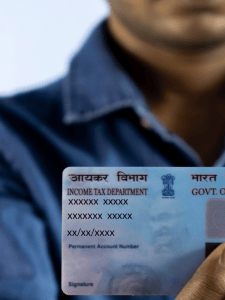![]()
Online Payment Scams in India
In an era where online transactions have become an integral part of our daily lives, their convenience comes hand in hand with the looming threat of fraud and scams. Cybercriminals are becoming increasingly sophisticated, employing various tactics to exploit unsuspecting individuals. In this article, we’ll delve into the intricacies of India’s five most common online payment scams, shedding light on the modus operandi employed by these fraudsters and providing insights on how to protect your hard-earned money.
-
Phishing Attacks: A Web of Deception
Amit Kumar, Chief Technology Officer at Easebuzz, warns about the prevalence of phishing attacks that cybercriminals employ to trick users into revealing sensitive information. These deceptive emails or websites often masquerade as legitimate financial institutions or loan providers. To protect yourself, it’s crucial to be vigilant and report any suspicious links or messages related to financial transactions promptly. Collaborating with authorities, such as the cybercrime department, can aid in curbing the impact of phishing attacks.
-
Identity Theft: The Impersonation Game
Identity theft remains a significant concern in the digital age, as scammers misuse personal information to impersonate individuals. Gaining unauthorized access to accounts, these fraudsters make fraudulent transactions, leaving victims in financial distress. Vigilance in safeguarding personal information and implementing robust security measures, such as two-factor authentication, is imperative to thwart identity theft attempts.
-
Fake Delivery OTP Scam: Exploiting Trust
E-commerce platforms introduced One Time Passwords (OTPs) to enhance the security of delivery transactions. However, scammers, operating with cunning tactics, exploit the trust placed in this security measure. By requesting OTPs under the guise of facilitating the delivery process, fraudsters employ illicit techniques like phone cloning or hacking to access sensitive information. Awareness and scepticism in sharing OTPs are key to avoiding falling prey to this deceptive scam.
-
Fake QR Codes: Mimicking Legitimacy
The emergence of QR code scams underscores the adaptability of fraudsters. Fake websites, mirroring legitimate online stores, entice users with counterfeit QR codes, leading them to make payments for non-existent products. Amit Kumar emphasizes the need for users to exercise caution when scanning QR codes and verify the authenticity of websites to mitigate the risk of falling victim to this deceptive practice.
-
UPI Fraud: Exploiting Digital Convenience
The advent of UPI and digital transaction methods has revolutionized online payments but has also opened avenues for fraudsters. Scammers manipulate individuals into making unauthorized UPI transactions or coerce them into divulging UPI PINs. To counter UPI fraud, users must be cautious when sharing UPI details, verify transaction details before confirming, and promptly report any unauthorized transactions to their respective banks.
Conclusion
As online transactions continue to evolve, so do the tactics employed by cybercriminals. Safeguarding your finances in the digital landscape requires constant vigilance, awareness, and adherence to secure practices. By understanding the nuances of these common online payment scams and implementing proactive measures, individuals can fortify their defences against financial fraud and protect their hard-earned money from falling into the wrong hands.





